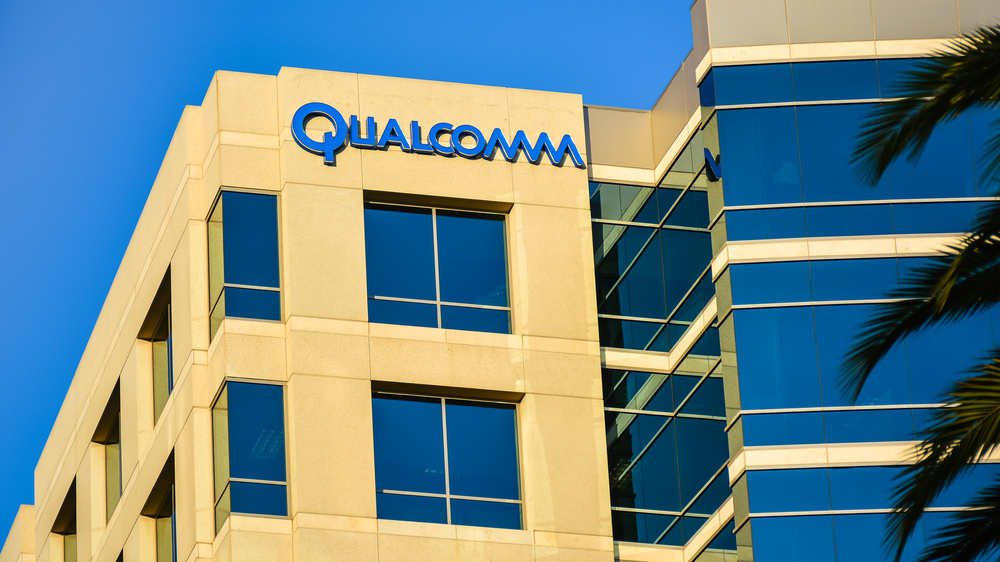Qualcomm fined $1.2bn for Apple chip payments
The company 'stifled innovation and competition' by paying billions for exclusivity contracts

Qualcomm has been fined $1.2 billion by the European Union for abusing its dominant position by paying Apple to use its chips exclusively in its tablets and smartphones.
The world's largest manufacturer of semiconductor chips is said to have hurt market competition by blocking rivals from securing contracts for any Apple devices between 2011 and 2016.
"Qualcomm illegally shut out rivals from the market for LTE baseband chipsets for over five years, thereby cementing its market dominance," said Commissioner Margrethe Vestager.
"Qualcomm paid billions of US Dollars to a key customer, Apple, so that it would not buy from rivals. These payments were not just reductions in price - they were made on the condition that Apple would exclusively use Qualcomm's baseband chipsets in all its iPhones and iPads."
She added that this meant many rivals, most notably Intel, were unable to challenge Qualcomm's position regardless of the quality of their product and that the chipmaker's behaviour "denied consumers and other companies more choice and innovation".
Qualcomm signed an agreement with Apple in 2011 to provide LTE baseband chips for use in iPhones and iPads, as well as a commitment to make "significant payments" to Apple for exclusivity.
The terms of this agreement were extended in 2013 to 2016, with a clause that said payments would cease if Apple released a product using a chip belonging to a rival. An additional clause also made it clear that Apple would have to return a large portion of those historic payments if such a device was released.
Sign up today and you will receive a free copy of our Future Focus 2025 report - the leading guidance on AI, cybersecurity and other IT challenges as per 700+ senior executives
Internal documents unearthed by the EU investigation found that Apple gave serious consideration to the idea of granting a contract to Intel to provide chips instead, but that the exclusivity payments and their return clause played a "material factor" in its decision to maintain the agreement.
Qualcomm's practices are thought to have helped contribute to a 90% market share of the chip market, according to the report, an industry that typically has high barriers to entry due to R&D costs.
The two companies have been engaged in a legal back and forth since the agreement came to an end in late 2016, and today's decision is likely to add further weight to Apple's accusations of abusive contract terms and patent infringement.
Qualcomm previously accused Apple of infringing technology patents related to improving the battery life of smartphones, only for Apple to countersue with allegations that the chipmaker infringed on at least eight of its battery patents. has contacted Qualcomm for comment on today's decision.
The substantial $1.2 billion (997 million), or 4.9% of the company's turnover, was, in fact, lower than some had predicted, as EU fines are capped at 10% of annual turnover, meaning a possible fine of up to $2 billion in Qualcomm's case.
However, Qualcomm is still reeling from a $774 million fine from Taiwan's Fair Trade Commission levied against the company in October. That investigation found the company had abused its dominant position to unfairly bump up its licensing fees, something that Apple also alleged in one of its many lawsuits.
Qualcomm has said that it "strongly disagrees with the decision" and will seek to immediately appeal to the General Court of the European Union. If so, today's ruling is unlikely to be the end of it, particularly as Intel recently won the right for its own $1.3 billion anti-trust case to be re-examined by the EU.
Image: Shutterstock
Dale Walker is a contributor specializing in cybersecurity, data protection, and IT regulations. He was the former managing editor at ITPro, as well as its sibling sites CloudPro and ChannelPro. He spent a number of years reporting for ITPro from numerous domestic and international events, including IBM, Red Hat, Google, and has been a regular reporter for Microsoft's various yearly showcases, including Ignite.
-
 How SMBs can DIY their IT implementation and support
How SMBs can DIY their IT implementation and supportFeature For some small and medium-sized businesses, the third-party expertise and support might be out of reach. What’s the alternative?
-
 What the fragmentation of UC means for the channel
What the fragmentation of UC means for the channelIndustry Insights If communications are becoming fragmented, what does that mean for MSPs and VARs?
-
 European Commission approves data flows with UK for another six years
European Commission approves data flows with UK for another six yearsNews The European Commission says the UK can have seamless data flows for another six years despite recent rule changes
-
 Three things you need to know about the EU Data Act ahead of this week's big compliance deadline
Three things you need to know about the EU Data Act ahead of this week's big compliance deadlineNews A host of key provisions in the EU Data Act will come into effect on 12 September, and there’s a lot for businesses to unpack.
-
 The second enforcement deadline for the EU AI Act is approaching – here’s what businesses need to know about the General-Purpose AI Code of Practice
The second enforcement deadline for the EU AI Act is approaching – here’s what businesses need to know about the General-Purpose AI Code of PracticeNews General-purpose AI model providers will face heightened scrutiny
-
 Meta isn’t playing ball with the EU on the AI Act
Meta isn’t playing ball with the EU on the AI ActNews Europe is 'heading down the wrong path on AI', according to Meta, with the company accusing the EU of overreach
-
 ‘Confusing for developers and bad for users’: Apple launches appeal over ‘unprecedented’ EU fine
‘Confusing for developers and bad for users’: Apple launches appeal over ‘unprecedented’ EU fineNews Apple is pushing back against new app store rules imposed by the European Commission, suggesting a €500m fine is a step too far.
-
 Apple, Meta hit back at EU after landmark DMA fines
Apple, Meta hit back at EU after landmark DMA finesNews The European Commission has issued its first penalties under the EU Digital Markets Act (DMA), fining Apple €500 million and Meta €200m.
-
 ‘Europe could do it, but it's chosen not to do it’: Eric Schmidt thinks EU regulation will stifle AI innovation – but Britain has a huge opportunity
‘Europe could do it, but it's chosen not to do it’: Eric Schmidt thinks EU regulation will stifle AI innovation – but Britain has a huge opportunityNews Former Google CEO Eric Schmidt believes EU AI regulation is hampering innovation in the region and placing enterprises at a disadvantage.
-
 The EU just shelved its AI liability directive
The EU just shelved its AI liability directiveNews The European Commission has scrapped plans to introduce the AI Liability Directive aimed at protecting consumers from harmful AI systems.